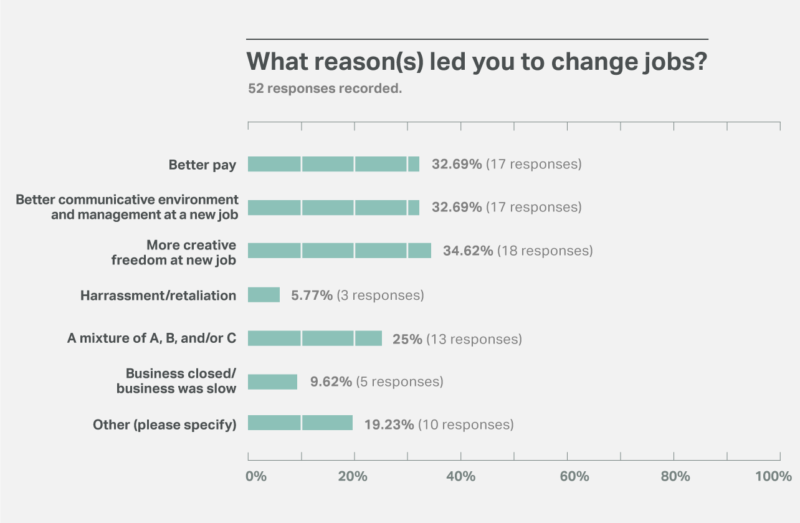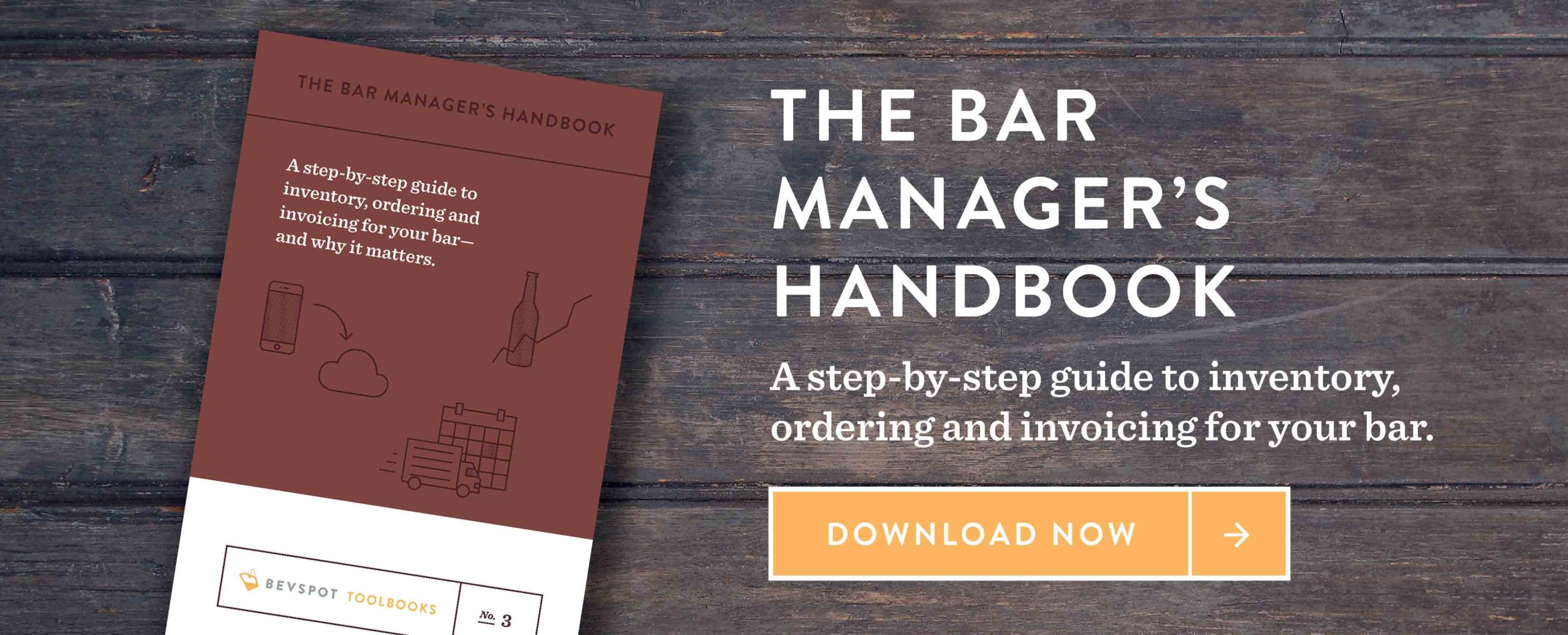


There’s a phrase all of us in the service industry know well. You have to move fast and well to maximize your sales. It’s also a phrase I find accurately describes the way we move through service jobs. As a former hiring manager at an upscale urban gastropub, it was rare when I came across a resume where someone had stayed for longer than 2 years at any particular place. Those who had were often veterans of the industry: people going for 10+ years. I wondered if there were specific demographics I could pinpoint beyond my personal experience. So, I created a survey targeting bar managers and veterans and sent it through a small portal on Facebook.
As I suspected, the main reasons for service workers changing their jobs are similar to the reasons many in all industries leave a company: better pay, better communication/management at new job, and more creative freedom/solo responsibility.
Most of the written responses (in the “other” category) communicated that it was a mixture of all three with some variance for personal relocation and harassment/retaliation.

Some other takeaways from the survey:
From Sara Kirpes, a manager and veteran of the industry:
“Always looking for the best you can get – better tips, better management, better clientele. But even more so, tending and serving are taxing physically and emotionally — if one is good at their job, they will cater to each customer’s needs, essentially putting everyone they interact with before themselves. It is a selfless job, and very often thankless. Anyone who works with the public as their primary job function knows that customer service is incredibly draining on oneself.”
We know part of the frustration felt within the service industry is the very real problem of how a person can work for 10+ years and develop their technique and knowledge, yet still only earn minimum wage and tips.
Inflation rises, but minimum wage doesn’t. Or rather, minimum wage doesn’t rise in an equally scalable form that allows for the same livability from prior minimum wage. Bartenders, servers, and other tipped wage earners seldom see a pay increase that takes care of that life uptick. Combine that with seldom well-taught management and owners without business acumen, and, boom, you have turnover galore. If you needed the data, and the opinion, there you have it.

Good management and ownership is present where it counts: in the thick of things, asking questions and jumping in to help when someone is in the weeds. They ask and think. Good management is empowered and engaged, leading instead of criticizing. When I first landed in Boston, I spent some time observing Eastern Standard, The Hawthorne, and Island Creek Oyster Bar. I spent one evening doing an informational stage behind the Hawthorne where I encountered several staff members who have been working there for at least 3 years. All stated the program, management, and structure as reasons for their tenure.
I also spoke to Jackson Cannon and Jared Sadoian, Beverage Director and Assistant Beverage Director of Eastern Standard, The Hawthorne, and Island Creek Oyster Bar, respectively, and asked them about how all of the different businesses have such dedicated, long-term employees. Jackson Cannon helped pioneer the career advancement structure they have, and their particular training for all employees starting from the beginning of Eastern Standard.
“Everyone is included and there is always opportunity to grow within. We want our employees to learn at their own pace, however they want to grow in the company.”
Many employees, including Cannon and Sadoian, grew up through the ranks. Likewise, several bartenders have spent 7-8 years working at Eastern Standard. In an industry where 2 years is considered a long time, that’s legendary status right there.
At The Hawthorne, they have established a teaching program: employees get to taste product, are assigned homework, and are educated on history and technique so as to have a complete grasp on what’s going on behind their bar. To keep good staff from jumping ship, you have to create the environment that encourages and challenges an employee. Running a business means learning to care about the employees as much as one cares about the customers and money.
Having proper programs (shameless plug: like BevSpot) in place helps reduce inventory times and provide a training model for employees to understand the financials behind bar operations. To-do lists and organization are necessary to running one’s business and will provide structure for employees to learn and grow. Whether it’s a mise en place created for the front-of-house staff, or a program that makes inventory and ordering more efficient, these will help your management learn how to engage with employees outside of general procedure and encourage more personalized, professional learning.
Keeping staff interested and engaged is a big part employee retention. I’ve also learned when one’s staff is part of the financial side of the business, they’re more invested because they see just how much goes into running the restaurant/bar well. As much as you care about your business, you need your employees to feel cared for and care for where they work.
As our industry and society continues to realize the importance of empathetic, transparent communication, I can only hope to see more businesses running like Eastern Standard, The Hawthorne, and Island Creek Oyster Bar. It’s time for us to put our money into the people running our restaurants and bars.
Schedule 15mins to chat with a product specialist
Start a FREE Trial Today! BevSpot offers full product education and account setup for all customers! No card Information needed!
